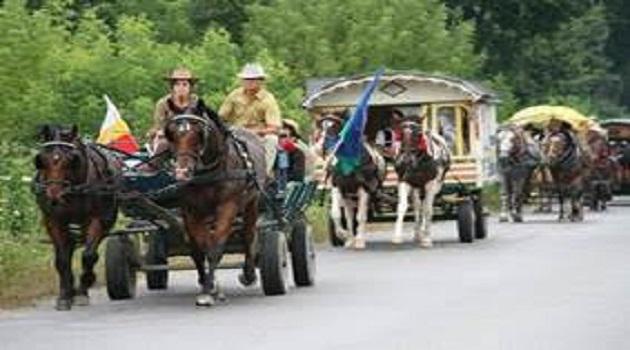The unmarked graves of hundreds of Romani people murdered during WWII are scattered throughout Poland, according to Adam Bartosz, curator of the Regional Museum in Tarnów. One mass grave of Romani victims in Szczurowa village (Małopolska province) is probably the largest, containing 93 people, as almost the entire Romani settlement was killed and buried there.
In 1942 all of the Jewish residents of Szczurowa were resettled to an urban ghetto from which they were transported to the death camps. On 3 July 1943, the Roma settlement was surrounded and the Nazis loaded the Romani families into their own wagons, transporting them to the local cemetery where they were shot dead and buried in a common grave.
A few Romani residents survived including a five-year-old girl. Because the killing of the Roma was directly witnessed by non-Romani members of the community, some of whom were forced by the Nazis to transport the Roma to the cemetery and to bury them, the tragedy has remained alive in the minds of local villagers there to this day.
At the suggestion of the residents of Szczurowa, the mass grave of the Romani vicitms has been outlined with stones and topped with an obelisk and cross. Local parish members have since worked to turn into an historical monument.
Caravan Memorial
The idea for a Caravan Memorial to commemorate the Romani Holocaust began in 1996. Bartosz had opened a permanent exhibition on the Roma and their culture in 1990, and he and Adam Adrasz, President of the Roma Association in Tarnów, began the Caravan Memorial tradition together.
Borrowing horses from local stables and using old wagons from the museum’s collection, the Romani residents of Tarnów commemorated the extermination of the Roma from Szczurowa by holding a memorial caravan procession. Over time the caravan grew larger and included Romani participants from other countries, developing into a four-day trip that is popular with locals and the media.
The organizers continue this tradition in order to commemorate the Romani Holocaust, integrate Romani people into contemporary society, teach Romani children and youth about their culture and history, and to improve the image of Roma in Poland, including through using the internationally-accepted Romani anthem and flag. Starting in late July, the caravan leaves its starting point in Tarnów and makes symbolic stops along the way.
At the cemetery in Żabno the caravan visits the mass grave of anonymous Romani people who died there during WWII. The grave is believed to contain the remains of 49 Roma from Germany and 12 Roma from Hungary who were murdered there.
A priest and representatives of the local authorities say prayers there with the Romani caravan, which then travels on to the killing sites of Borzecin Dolny and Bielcza before spending three days camping in Szczurowa. During that time participants recall Romani camp life and customs of their previous travelling life that have long been forgotten.
The caravan is covered by the media and the wagons attract many locals, who participate in commemorating the Romani victims of WWII. For young Romani people the caravan is their first encounter with the traditional lifestyle of their forebears, while for elders it is reminder of the days before WWII.
This year’s caravan will take place from 23-26 July. It is organized by the Regional Museum in Tarnów and the Committee for Protection of Jewish Heritage in Tarnów in partnership with the Commune Center of Culture of Reading and of Sport in Szczurowa, the Kher Association of Roma Women, the PROM Foundation for Social Integration and the Romano Dzipen Roma Association of Bydgoszcz with financial support from the Polish Minister of Administration and Digitalization as part of the Program for the Roma Community in Poland 2014-2020.
